Meet NIH-Funded Researchers
Sometimes, individuals who are interested in research or science careers do not know anyone who has applied for NIH support, and who can share information about their career path. On this page, we introduce you to scientists from diverse and underrepresented backgrounds who have received NIH support.
Use the filters below to select the career level and research discipline that you are interested in to meet researchers.
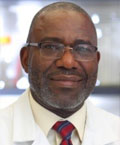
Dr. Akintoye is an associate professor in the Department of Oral Medicine at the University Of Pennsylvania School of Dental Medicine and a National Institute of Dental and Craniofacial Research-funded principal investigator who was recently selected as a Fulbright Scholar. His project will entail studying senescence-associated autophagosomal activity in the human dental pulp. Dr. Akintoye is a clinician-scientist with interest in basic and translational research related to alleviating orofacial complications of cancer therapy. His research is focused on orofacial bone mesenchymal stem cells, site-specific characteristics and therapeutic applications as donor graft to bridge osseous defects in the maxillofacial region. Dr. Akintoye’s research has received support from the National Cancer Institute, National Institute of Dental and Craniofacial Research, American Cancer Society, University of Pennsylvania Research Foundation, Penn Center for Musculoskeletal Disorders, Penn Institute for Regenerative Medicine and Private Foundations.
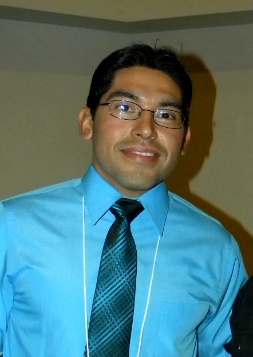
Dr. Arellano is a post-doctoral fellow in the Ecology and Evolutionary Biology Department at Brown University. Previously, he worked under a F32 training grant examining control strategies used by young and older adults when supporting an inertial load and the implications for the energetic cost of antagonist coactivation. His current project involves defining the mechanical influence of elastic elements on muscle force production and locomotion. “My interests regarding diversity issues stem from my own personal experiences as a scholar of Mexican-American descent. I am the only person in my family to attend college and thus a first-generation student. I am one of many under-represented scientists in the STEM fields who have been supported through programs such as the National Institutes of Health (NIH) Initiative for Minority Student Development (IMSD). As I make my way toward a tenure-track faculty position, I look forward to contributing to the recruitment and diversity efforts set out by the NIH.”
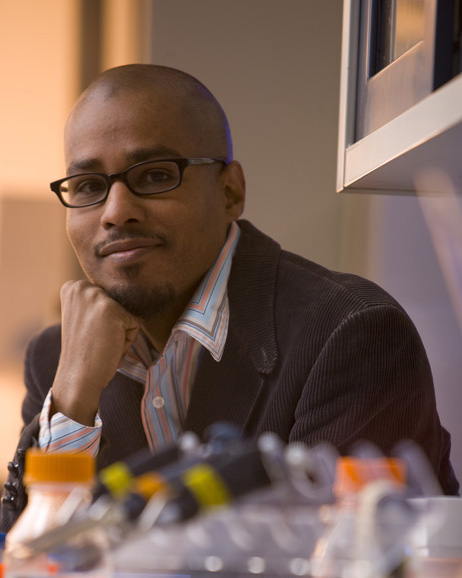
Dr. August is professor of immunology and chair of the Department of Microbiology & Immunology in the College of Veterinary Medicine at Cornell University. He is principal investigator of three NIAID-supported grants and the NIH-funded Broadening Experiences in Scientific Training (BEST) program at Cornell University, as well as chair of the Steering Committee for the Annual Biomedical Research Conference for Minority Students (ABRCMS). Dr. August received a PhD in immunology from the Weill Graduate School of Medical Sciences of Cornell University and completed a postdoctoral fellowship at The Rockefeller University. He conducts research exploring signals that regulate the activation of immune cells, including mast cells, CD8 memory T cell development, and CD4 effector T cell differentiation.

Dr. Barnes is a professor in the Neurological Sciences and Behavioral Sciences Departments at Rush University Medical Center. She is the director of the Rush Center of Excellence on Disparities in HIV and Aging and a cognitive neuropsychologist in the Rush Alzheimer’s Disease Center at Rush University Medical Center. She received a PhD in biopsychology from the University of Michigan and completed a postdoctoral fellowship at the University of California, Davis. She is the Principal Investigator, and a co-investigator on a number of other NIH funded studies. She has published extensively on health disparities and minority aging and is an advocate for Alzheimer’s disease awareness and healthy aging in the minority community.

Oliver Bear Don’t Walk is a Bioinformatician with a strong background in Data Science. He graduated from Stanford University with a B.S. in Mathematics and Computational Science in June 2015, and is currently working toward an MS in Biomedical Informatics at Stanford University's School of Medicine. He says that “pursuing my MS degree is important to me because I not only want to make data matter; I want to use it to improve our quality of life.” Don’t Walk is working with Virginia Walbot at Stanford’s Short-Term Trainee Program to analyze cell fate specification in premature maize anthers. Specifically, he works alongside biologists to analyze genomic and proteomic data in immature maize tassels. This includes microarray data analysis as well as creating cluster plots and heat maps. He is also learning about new biological sources of data and mass spectronomy analysis tools like MASCOT to account for variation in protein mass.

Dr. Bibbins-Domingo is a Professor of Medicine and of Epidemiology and Biostatistics, University of California, San Francisco (UCSF) and Director, Clinical and Translational Sciences Institute Training Programs (CTST). Dr. Bibbins-Domingo also directs the UCSF Center for Vulnerable Populations at San Francisco General Hospital (SFGH), a research center focused on discovery, innovation, policy and advocacy, and community engagement for populations at risk for poor health and inadequate healthcare. Dr. Bibbins-Domingo is a general internist at SFGH and a cardiovascular epidemiologist with expertise in cardiovascular disease, diabetes, and chronic kidney disease. Her work focuses on racial, ethnic and income differences in manifestations of chronic disease and effective clinical, public health, and policy interventions aimed at prevention. She leads the UCSF computer simulation modeling group using the Cardiovascular Disease Policy Model.
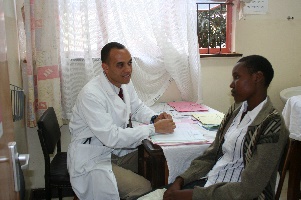
During his fellowship in Kenya, Dr. Gerald Bloomfield discovered an epidemic of diabetes, heart failure and high blood pressure among the population. Noticing a lack of expertise available to address it, he put together a series of lectures targeting medical students, residents and technicians. “Knowing that I would never personally see everyone who needed a cardiologist, I decided to spend time teaching others so as to multiply my effectiveness. It was labor intensive and definitely a labor of love,” he says. Care improvements were his reward. The ultimate goal of global health efforts, says Bloomfield, is to “build centers and train people to the point where we do not become independent but inter-dependent on each other.” While in Kenya, he also made progress on his investigation of the genetic markers of atherosclerosis and the prevalence of hypertension and diabetes in certain populations. After he completes his cardiology training next year, Bloomfield hopes to join the faculty of an academic institution where he can focus on global health issues. By demonstrating the true burden of chronic, non-communicable disease — through epidemiology — he hopes to influence policy changes in developing countries to stem the burgeoning tide.

Dr. Valarie Blue Bird Jernigan is an Associate Professor, Health Promotion Sciences, College of Public Health, University of Oklahoma Health Sciences Center. Dr. Jernigan, who is of Native American heritage, is studying the impact of healthy food makeovers of tribally owned convenience stores in the Choctaw and Chickasaw Nations of Oklahoma. She engages in community-based participatory research and health policy and uses empowerment and advocacy interventions using participatory documentary styles to develop environmental and policy strategies to address obesity.
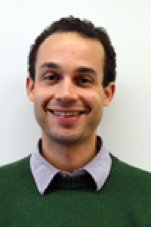
Dr. Buckley received his PhD in physics from Cornell University in 2010 and worked as a post-doctoral fellow at the University of Pennsylvania from 2010-2012. He joined the faculty of the Department of Biomedical Engineering at the University of Rochester in January of 2013. He has co-authored publications on diverse topics ranging from three-dimensional tracking of swimming bacteria to the mechanical properties of cartilage under shear loading. Dr. Buckley is currently interested in “viscoelastic” soft biological tissues like cartilage and tendon that exhibit both fluid- and solid-like mechanical properties. His research emphasizes finding ways to control and exploit these complex properties to diagnose damage and disease, guide rehabilitation protocols and evaluate treatment and repair strategies in these tissues.

Dr. Choi is a professor and the Louis and Ann Wolens Centennial Chair in Gerontology in the School of Social Work at The University of Texas at Austin. Dr. Choi’s current research focuses on depression in late life and improving access to evidence-based psychosocial treatments for low-income homebound older adults. Between 2009 and 2013, her research team tested feasibility and efficacy of delivering problem-solving therapy (PST) for homebound older adults via home-based, low-cost videoconferencing methods. In her current research, the aim is to compare clinical and cost effectiveness and budget impact of aging-service integrated, tele-PST by licensed mental health clinicians with aging-service integrated tele-self-care management support by trained lay providers for depressed homebound older adults. Her other areas of research include impact of substance abuse on older adults, mental health and substance abuse treatment use, disparities in health status and healthcare utilization, minority aging, and technology and aging services.

Dr. Dagogo-Jack has been a grantee of the National Institute on Diabetes and Digestive and Kidney Diseases (NIDDK) since he completed his training. He has participated in some of NIDDK’s pivotal clinical studies and clinical trials such as the Diabetes Control and Complications Trial/Epidemiology of Diabetes Interventions and Complications (DCCT/EDIC); and the Diabetes Prevention Program (DPP)/DPP Outcomes Study (DPPOS). He has also been a senior investigator in the NIDDK’s Network of Minority Health Research Investigators (NMRI) mentoring junior faculty members of the Network. He is nationally and internationally renowned and currently serving as the President of the American Diabetes Association.

Dr. Daley works on a culturally-tailored smoking cessation program with American Indian communities through the Haskell Health Center and the urban Native population in Kansas City. She is Associate Professor in the Preventive Medicine & Public Health, Director of the Center for American Indian Community Health, serves as a board member for the American Indian Heartland Cancer Network and is active in various community activities serving this population. Her major areas of research focus on the reduction of health disparities in Native North America through primarily cancer control and prevention, cross-cultural communication in the health care setting and via technology, and the intersection of qualitative and quantitative ethnographic data collection and analyses. She has additional interests in health literacy, traditional medical beliefs surrounding cancer, disease in human evolution, and children with special needs.
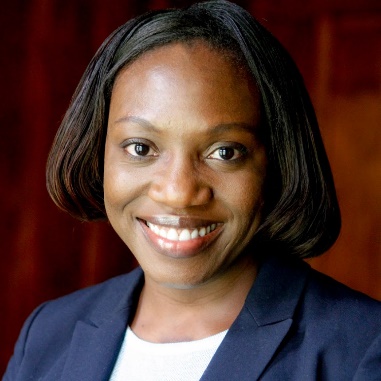
Dr. Davies-Venn was supported by the National Institute on Deafness and Other Communication Disorders (NIDCD) diversity supplement program as a pre-doctoral trainee. For her dissertation research, she was awarded an NIDCD Ruth L. Kirschstein National Research Service dissertation fellowship which funded the final phase of the dissertation work. She is a successful story for the supplement program because we strongly encourage applicants to transition to NIH mainstream training funding. She was also awarded a diversity supplement during her post-doctoral training and is now pursuing mainstream early stage investigator research funding for her current independent research program. Her research program examines behavioral and physiological factors that are responsible for individual variance in treatment outcomes for individuals with hearing loss, who are often treated with sensory aids such as hearing aids or cochlear implants. She credits perseverance and great mentoring with helping her become an assistant professor in the Department of Speech-Language-Hearing Sciences at the University of Minnesota.
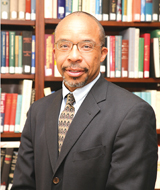
Dr. DeBaun is Director of the Vanderbilt-Meharry Center for Excellence in Sickle Cell Disease at Vanderbilt University School of Medicine. Dr. DeBaun’s research ranges from the impact and treatment of silent infarcts on a child’s Full Scale IQ and academic performance to interrogating the basis for why lung disease, specifically asthma or asthma-like disease, results in a higher rate of morbidity and mortality in sickle cell anemia. He is currently leading two clinical trials for primary and secondary stroke prevention, respectively, in children with sickle cell anemia living in Africa. These clinical trials hold promise of improving quality of life for thousands of children in Africa, where the majority of children with sickle cell anemia are born.

Dr. DeLeon is a professor of physiology and Director of the Loma Linda University Center for Health Disparities and Molecular Medicine at Loma Linda University. Dr. DeLeon’s career has focused in restorative neurosciences and health disparities. His molecular genetics research seeks to characterize the genetic programs associated with neuronal injury and nerve regeneration, and he has identified important myelin and neuronal proteins playing an important role in nerve regeneration, peripheral neuropathies and neuropathy pain. Dr. DeLeon has led the center to fulfill its mission to eliminate health disparities through research, education and community engagement. The center includes a cadre of talented scientists involved in research focused in studying biological determinants/mediators of health disparities while supporting a robust pipeline program to increase diversity in the biomedical workforce in USA and engaging the local through community based participatory research in the implementation of health promotion initiatives.

Dr. Edberg is an associate professor in the Department of Prevention and Community Health, with secondary appointments in the Columbian College of Arts & Sciences Department of Anthropology and the Elliott School of International Affairs, at George Washington University. His central research focus is on poverty and marginalization in relation to health issues such as HIV/AIDS, substance abuse and youth violence.

Dr. Eko is a professor in the Department of Microbiology, Biochemistry and Immunology at Morehouse School of Medicine in Atlanta, GA. Dr. Eko earned his Dr.Sc. in Microbiology and Genetics from the University of Vienna, Austria. His research is focused on host-microbe interaction studies aimed at elucidating the immune correlates of protection against Chlamydia and using this information to develop and test self-adjuvanting, cold-chain-free vaccine candidates in animal models. Dr. Eko is also investigating the role of exosomes in Chlamydia pathogenesis. His research is funded mainly by investigator-initiated R01 grants from NIAID. He has served on multiple NIAID study sections and was a standing member of the Vaccines for Microbial Diseases study section.
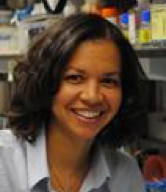
Dr. Fitzhugh is Assistant Clinical Investigator, Laboratory of Early Sickle Mortality Prevention, in the Sickle Cell Branch of the National Heart, Lung, and Blood Institute. Dr. Fitzhugh is exploring new avenues of hematopoietic stem cell (HSC) transplantation for sickle cell disease (SCD), while also studying the currently underexplored cardiovascular complications arising due to this genetic blood disorder.
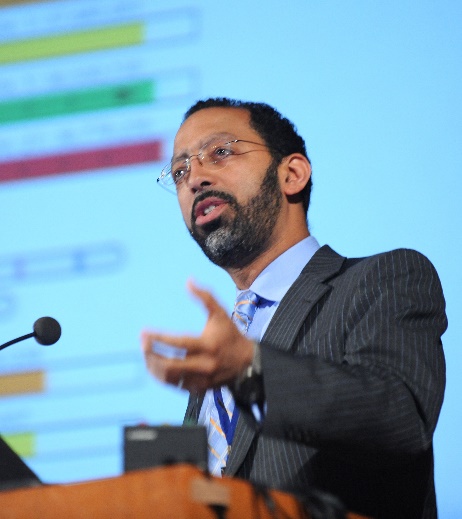
A former National Cancer Institute’s Continuing Umbrella of Research Experiences Scholar, Dr. Garraway is an institute member of the Broad Institute, and is the inaugural director of the Joint Center for Cancer Precision Medicine at the Dana-Farber Cancer Institute, and Brigham and Women’s Hospital. His cutting edge research links genomic changes in tumors to novel avenues for targeted cancer treatments. He published the first genome sequencing studies of aggressive primary prostate cancer, and has led major sequencing initiatives in melanoma and head/neck cancers.
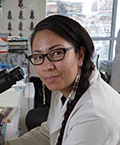
Ms. Grey Cloud is a postbaccalaureate Intramural Research Training Awardee in NIDCR’s Proteases and Tissue Remodeling Section where she works senior investigator Thomas H. Bugge, PhD to study enzymes involved in the abnormal remodeling of tissue, such as in the thinning of bones in osteoporosis. They also investigate the undesirable collagen degradation that enables cancer cells to invade healthy nearby tissue. “My research centers on the role of a collagen receptor—the mannose receptor—and its importance in bone homeostasis,” said Grey Cloud. “We believe it may constitute a novel target for osteoporosis treatment.”
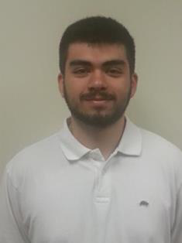
Rolando Hernandez expects to complete his Master’s degree at the University of Texas on the topic of brow prediction models for disease outcomes in RA and other rheumatic diseases using clinical data. He plans next to apply to a PhD program in Biomedical Informatics, having cemented his interest in the field after completing a short-term traineeship at the University of Utah’s Department of Biomedical Informatics over the summer of 2015. While at Utah, Rolando worked on a research project titled, “Exploratory Work on Using 3D Protein Structure Prediction for Variant Annotation.” In his own words, “Using statistical and computational methods we located candidate genes, annotated them, predicted the protein's structures, and collected data using various other methods in order to elucidate the effects of the single nuecleotide polymorphism on the proteins…In this work, using computational methods, we created models that describe how a specific point mutation in an amino acid sequence known to contribute to oncogenesis changes the 3D structure of a protein. Using known pathogenic mutations from the COSMIC database we predicted the wild type and mutated structures and compared several structural properties like surface area (ASA), root mean square deviation (RMSD) between the experimental wild-type structure, thermodynamic stability, folding rate, and conservation score.”
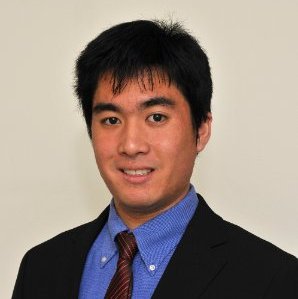
Jeremy Jao was an undergraduate Short Term Trainee funded by the National Library of Medicine who applied computer science to biomedical research problems. While funded by NLM, Jao worked on several projects including providing health professionals with an easy way to examine drug health outcome relationships, examining the relationship between nursing home falls and drugs, and drug adverse bleeding event relationships. He also constructed part of the Knowledgebase for the Observational Health Data Sciences and Informatics project. Jao is currently a software engineer working for a company located in the Pittsburg area that specializes in clinical documentation.

Mr. Johnson earned his BS in computer science from Morehouse College and is currently a PhD student at the University of California, Los Angeles, in Bioinformatics. During his undergraduate studies, he completed a successful internship at the Lister Hill National Center for Biomedical Communications at the NIH National Library of Medicine and was able to continue related work with the faculty at the Harvard Department of Biomedical Informatics. While at Harvard, Daniel’s research focused on identifying concepts in computer-based medical history with the goal of linking those concepts to standard ontologies.
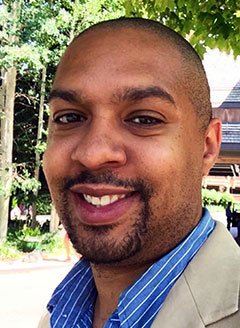
Dr. Johnson earned his PhD at the University of North Carolina, Chapel Hill, where he studied the effects of calcium on bacterial motility and attachment. Currently he is an assistant professor at the University of Arizona, where he studies how metals affect all biological systems. During infections, bacteria must not only acquire all metals necessary for survival from within the host, such as calcium or manganese, but must also efflux metals that are toxic or in excess such as copper. The overall goal of his laboratory is to investigate how bacteria maintain homeostasis within the metal milieu. This goal involves determining how metals are processed, the orchestrated response during metal sensing, and the role that the host plays in this process during infection. Understanding how bacteria interact with metals during infections will identify novel therapeutic strategies against bacterial infections.

Dr. Marlin earned her PhD from New York University where she studied the role of oxytocin in auditory cortical plasticity. She is currently a post-doctoral research fellow at the New York University School of Medicine. She was recently featured in the NIH Director’s Blog for her graduate discoveries which were supported in part, by a National Institute on Mental Health training grant. Dr. Marlin recently reported in the prestigious journal Nature that the hormone oxytocin interacts with experience to tune the female rat brain to attend to maternal duties by effectively amplifying the significance of pups’ distress calls via circuitry in the left auditory cortex. Dr. Marlin carried out the research under the mentorship of NYU’s Robert Froemke, PhD, with support from a NIMH grant, Training in Systems and Integrative Neuroscience, to NYU’s Lynn Kiorpes, PhD. The study was also supported, in part, by grants from the National Institute on Deafness and Other Communication Disorders.
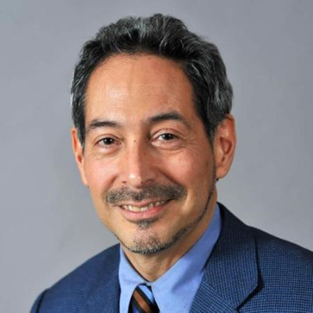
Dr. Juarez earned his PhD from the Heller School for Social Policy and Management at Brandeis University. Currently he is a professor and vice chair for research in the Department of Family and Community Medicine at Meharry Medical College in the School of Medicine. Dr. Juarez is nationally recognized for his research in health disparities, particularly in the area of youth violence prevention. His recent research, funded by the National Institute for Minority Health and Health Disparities, has applied an exposome approach to the identification and analysis of exposure pathways and how social determinants “get under the skin.” Nationally, he has been at the forefront in applying spatial-temporal and “big data” computational methods and analytics to population health. Dr. Juarez has published widely on topics of the exposome, youth violence, health equity, and community engagement.

Dr. Laurencin earned his MD from Harvard Medical School and his PhD from the Massachusetts Institute of Technology. He is noted for his scientific contributions to tissue engineering and biomaterials, efforts to promote biomedical engineering, advocacy on behalf of underrepresented populations, and service on the National Institute of Biomedical Imaging and Bioengineering Advisory Council. Currently he is the chief executive officer of the Connecticut Institute of Clinical and Translational Sciences, director of the Institute for Regenerative Engineering, and an endowed chair professor in the Department of Orthopedic Surgery at UConn Health.

Dr. June was a renowned neuropsychopharmacologist who passed away June 7, 2014. Dr. June had a long and distinguished career, with extensive research on the behavioral and biological substrates of alcohol and depression, alcohol and anxiety, and co-use of alcohol and nicotine that contributed to advances in treatment for alcohol use disorder and alcohol-induced depression as well as the prevention of binge drinking. His work also enhanced the understanding of alcohol’s contribution to health disparities in minority communities.
Throughout his career, Dr. June always had an eye toward translational research, and one of his last studies demonstrated that amitifadine, a triple reuptake inhibitor, reduced binge drinking as well as some of the negative behaviors associated with withdrawal in rats. NIAAA subsequently replicated these data, and amitifadine, currently in development for depression, is slated for an NIAAA-sponsored clinical study in alcoholism. This study would never have gotten off the ground without his vision of finding better agents to treat alcohol use disorders. Given his enthusiasm for science, it is no surprise that Dr. June was a gifted teacher and a dedicated, patient mentor to young, aspiring researchers. Read more about Dr. June’s distinguished career at Nature.com.

Dr. Lieberman is a practicing physiatrist in the Charlotte, North Carolina area who earned his MD from Wake Forest University. Dr. Lieberman’s clinical interests include spinal cord injury, spasticity, traumatic brain injury, and stroke. His research interests are the prevention and detection of cardiovascular disease in individuals with spinal cord injury. He completed a one-year internal medicine internship at East Carolina University, and a Physical Medicine and Rehabilitation (PM&R) residency at the Charlotte Institute of Rehabilitation. He also completed a Spinal Cord Injury Medicine fellowship at the University of Pittsburgh Medical Center. Following this, he did a three-year NHLBI-sponsored postdoctoral research fellowship, in which he assessed dietary intake in individuals with chronic spinal cord injuries. Currently, Dr. Lieberman has an NHLBI-sponsored career development award. For the research component of this, he is studying the effect of nutrition education on cardiovascular disease prevention in individuals with spinal cord injuries.
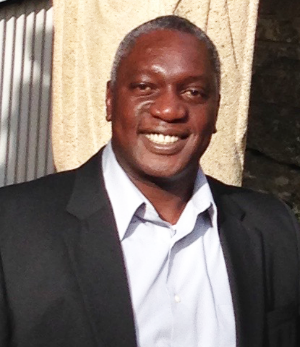
Dr. Lwigale earned his PhD in cell and developmental biology from Kansas State University. Currently he is an associate professor of biochemistry and cell biology in the BioSciences Department at Rice University. The main goal of his research is to identify and study gene function during corneal development, particularly by investigating the role of guidance molecules, which in turn may lead to identification of novel therapies for diseased and wounded adult corneas. He obtained his bachelor’s and master’s degrees from the University of Northern Iowa prior to earning his doctoral degree. He continued his training at the California Institute of Technology as an Elizabeth Ross Postdoctoral Fellow. Towards the end of his postdoctoral training, he successfully obtained an NIH K99/R00 training grant from the National Eye Institute to pursue his research on the molecular mechanisms of neural crest cell migration during corneal development.
Obtaining the K99/R00 grant helped Dr. Lwigale to develop a new project and obtain the necessary preliminary results required to apply for his first R01 grant, which was successful. His research interests have expanded to include neural crest cell differentiation into corneal cells, corneal innervation, corneal avascularity, and corneal wound healing. Throughout the funding period of the K99/R00 and R01 grants, Dr. Lwigale has successfully mentored several undergraduate and graduate students and postdoctoral fellows in his laboratory and department. He has also participated in training students who are interested in vision research as an instructor for the Fundamentals in Vision Research (FIVR) course at Woods Hole, and as a faculty participant in the Molecular and Developmental Biology of Vision Research course at Baylor College of Medicine.
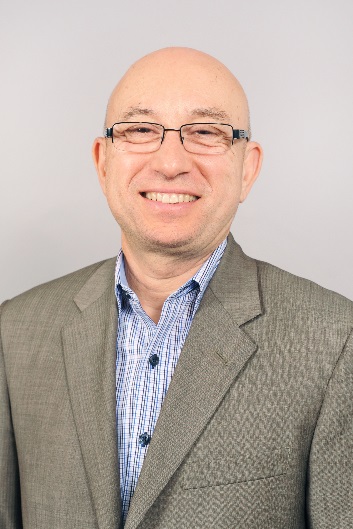
Dr. Marsiglia earned his PhD in applied social sciences from Case Western Reserve University. Currently he is a Regents’ Professor and Foundation Professor of Cultural Diversity and Health at the Arizona State University College of Public Service and Community Solutions School of Social Work. He is the director of the Southwest Interdisciplinary Research Center and a principal investigator of various research projects studying risk and protective factors associated with health outcomes among ethnic minority youth and their families. His areas of specialization are health disparities research, substance abuse, HIV/AIDS prevention, and culturally grounded social work practice with an emphasis on Latino cultures. Dr. Marsiglia is actively involved in several international research projects funded by the National Institute of Minority Health and Health Disparities in Mexico, Spain, Uruguay, Taiwan, Guatemala, China and Tanzania. He co-developed keepin’it REAL, a substance abuse prevention intervention for youth included in the National Registry of Effective Programs and Practices.
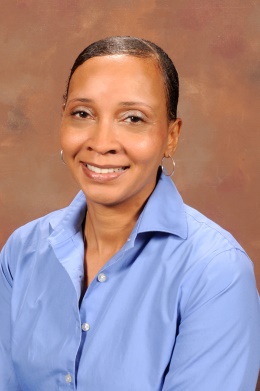
Dr. Martin earned her PhD in cellular biology and anatomy from the Medical College of Georgia at Augusta University. Currently she is an associate professor of biochemistry and molecular biology, ophthalmology at her doctoral institution. Her research laboratory focuses on the discovery and analysis of novel biochemical transporters and receptors in the retina that may be useful in the development of new therapeutic targets in the treatment and prevention of degenerative retinal diseases such as diabetic retinopathy. She received a K99/R00 NIH Pathway to Independence Award in 2007. This award strongly supported the launching and advancement of her independent career in vision science. Importantly, the studies that she began under the award have developed significantly, leading directly to the current NEI-supported R01 award (received in 2014) that supports her current research efforts.

Dr. McCoy has earned a master of social work from the University of Pennsylvania, a master of jurisprudence from Loyola University, and a PhD from Washington University in St. Louis. She is an assistant professor in the area of social work at the Jane Addams College of Social Work. Her research broadly focuses on African Americans and the challenges they currently experience in society. She currently has research projects focused on: 1) the intersection of mental health and juvenile delinquency, particularly how mental health issues precipitate the involvement of youth into the juvenile justice system, 2) the experiences of LGBTQ youth who are homeless, and 3) the violent victimization experiences of young Black men ages 18 to 24. Dr. McCoy is a Loan Repayment Program awardee.

Dr. Mitchell earned her PhD in social work from Ohio State University. She is currently an assistant professor of social work and co-director of the Gender and Health Research Lab at the University of Michigan. Her interdisciplinary research examines mechanisms of patient-centered communication between older African American men and their physicians during the course of cancer and chronic disease care. She tests ways of intervening to increase family and health provider social support while examining how African American men navigate and express their psychosocial needs during medical visits. Dr. Mitchell also investigates how African American men and their physicians accommodate each other’s communications styles during medical encounters in addition to evaluating how active patient participation and family involvement influence the health communication dynamic. Dr. Mitchell is a Loan Repayment Program awardee.

Dr. Carter earned her MPH and PhD from Saint Louis University in health policy evaluation and research. She is the founder, president and chief project director of Research, Evaluation and Social Solutions, Inc. Dr. Carter is a social entrepreneur, intervention researcher, and community based evaluator funded by the National Institute of Minority Health and Health Disparities. The oldest of eight children, she was raised in a single parent household in Kankakee, IL and currently resides and maintains her business operations in the historic Northern Neck region of Virginia. Over the past 30 years, Dr. Carter and her staff have worked with more than 1200 programs in 12 states and planned and conducted over 100 assessments and evaluations. Her company seeks to lead both the expansion of the use of serious learning games to improve life enhancement strategies for youth in under-resourced communities, and the use of new digital learning tools in building the capacity of the public health workforce.

Dr. Navarro-Millan received her MD from Universidad Autónoma de Guadalajara School of Medicine, Guadalajara, Jalisco, Mexico, in 2005. Currently she is an assistant professor of medicine at the University of Alabama, Birmingham in the Division of Clinical Immunology and Rheumatology. Dr. Navarro-Millán’s area of interest is outcomes research, with focus in patients with rheumatoid arthritis (RA). Her research focus is on factors that influence outcomes, particularly cardiovascular (CV) disease among patients with rheumatoid arthritis. Her goals include developing, testing, and implementing patient-centered interventions to reduce cardiovascular risk in RA patients. This includes the use of peer-coaches and community-based participatory research to improve patient activation and self-efficacy.
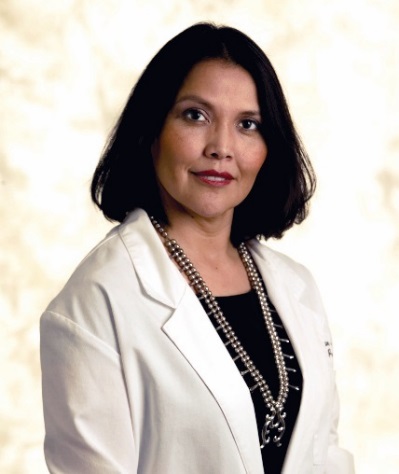
Dr. Henderson, a member of the Dine’ (Navajo) tribe, received her Bachelor of Science degree in biochemistry from the University of Arizona and earned a Master of Public Health degree from Yale University. Currently she is the vice president for the Black Hills Center for American Indian Health, an American Indian nonprofit in Rapid City, South Dakota. In 2000, Dr. Nez Henderson became the first Navajo woman to graduate from the Yale University School of Medicine and was the first person to receive the Patricia Nez Award, an annual award recognizing a Yale School of Medicine graduate committed to improving American Indian health. Funded by the National Institute of Minority Health and Disparities, she has collaborated with tribal communities all over the country in implementing comprehensive tobacco control and prevention programs, including for example, the development of culturally tailored cessation and web-based prevention programs for Native youth and mobilizing the Navajo Nation towards a commercial tobacco-free legislation.
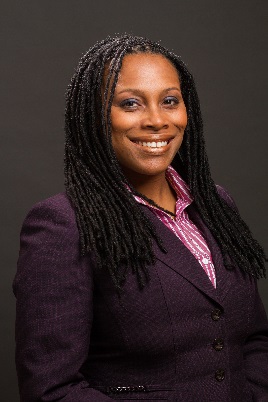
Dr. Nunez-Smith attended Jefferson Medical College, where she was inducted into the Alpha Omega Alpha Medical Honor Society. She is currently an associate professor of general internal medicine at the Yale School of Medicine and an associate professor of chronic disease epidemiology in the Yale School of Public Health. Dr. Nunez-Smith is founding director of the Equity Research and Innovation Center at Yale University, with the dual goals of developing and disseminating evidence-based models to narrow health and healthcare inequity gaps and providing research support infrastructure for Yale faculty and affiliated community-based organizations. Her research, funded by the National Institute of Minority Health and Health Disparities, focuses on promoting health and healthcare equity for historically vulnerable populations with an emphasis on supporting healthcare workforce diversity and development, developing patient reported measurements of healthcare quality, and identifying regional strategies to reduce the global burden of non-communicable diseases.
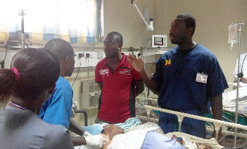
Dr. Oteng earned his MD from the University of Cincinnati in 2005. Currently he is an instructor of emergency medicine at the University of Michigan. He was born in Ghana but moved to the Washington, D.C. area when he was nine years old. Although he initially leaned toward journalism, he decided he could make more of a difference in people's lives as a doctor. “Emergency medicine became my definition of what a doctor is," he said. "You're trained to be ready for anything, so that anytime, anyplace you can have a positive effect on what is happening.” Oteng applied to Fogarty's Global Health Program for Fellows and Scholars to venture to understand clinical research and its possibilities. “For me, the Fogarty fellowship was that next step of learning how to do research, how to describe my thinking and how my discoveries could be translated to others.”
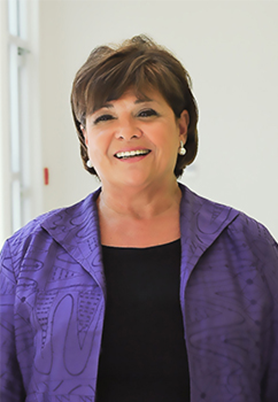
Dr. Peragallo Montano completed a Doctor of Public Health degree at the University of Texas, a Master of Science in Nursing degree at the University of West Virginia, and a Bachelor of Science in Nursing degree at the University of Chile. Currently she is a professor and dean of the University of Miami School of Nursing and Health Studies. A nationally and internationally recognized nursing scientist specializing in health disparities and culturally competent interventions with minority populations, Peragallo Montano has devoted her research and academic career to improving the health status of minorities and other medically underserved groups. In additional to possessing a solid record of successful competitive research funding from the National Institute of Minority Health and Health Disparities and author of numerous professional publications, she is a much sought-after speaker in her field and has mentored a number of Hispanic scientists who are now published authors and are advancing in positions of leadership.
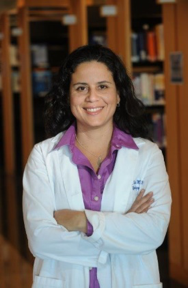
Dr. Peralta earned her MD from Johns Hopkins University in 2001. Currently she is an associate professor of medicine in residence at the University of California, San Francisco and founder and executive director of the Kidney Health Research Collaborative at UCSF and the San Francisco Veteran’s Administration Medical Center. She manifests the hope that the Center for Scientific Review had when it created the Early Career Reviewer (ECR) Program. This program was designed to jumpstart the research careers of emerging scientists and enrich the future pool of scientists who review NIH grant applications. After completing this program, Dr. Peralta went on to successfully compete for an R01 investigator-initiated grant as well as a Clinical Trial Planning Grant (R34). Dr. Peralta has focused her research on:
- Evaluation of strategies for early detection and risk stratification of kidney disease to reduce complications
- Optimization of hypertension treatment in vulnerable populations
- Translational approaches to improving care of persons with kidney disease and hypertension to reduce racial/ethnic disparities

Ms. Petrose is an undergraduate student at the University of Pittsburg where she studies economics and neuroscience. She previously completed a summer internship in Malawi, Africa under the direction of faculty member Dr. Gerry Douglas. Her interest in healthcare delivery in resource poor settings and future aspiration to pursue an MD/PhD studying the healthcare economy of the developing world made her an outstanding candidate for a fellowship. Lia Petrose conducted interviews with 21 laboratory and clinical staff at Kamuzu Central Hospital in Malawi, Africa to assess barriers and facilitators in delivering laboratory testing services. In collaboration with another National Library of Medicine fellow, Lia transcribed the interviews and analyzed them using axial coding. Lia has developed the findings into a manuscript accepted for publication (Petrose, Lia; Fisher, Arielle; Douglas, Gerald; Terry, Martha; Muula, Adamson; Chawani, Marlen; Limula, Henry; Driessen Julia. Assessing Perceived Challenges to Laboratory Testing at Kamuzu Central Hospital. American Journal of Tropical Medicine and Hygiene. (in press).
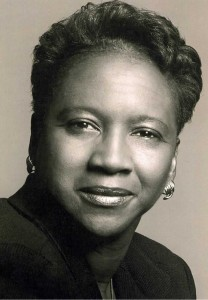
Dr. Jemmott earned a MSN in Psychiatric Metal Health Nursing and a PhD in Education in the Human Sexuality tract, both at the University of Pennsylvania. She is currently the Vice President for Health and Health Equity and a professor in the College of Nursing and Health Professions at Drexel University. She is an example of a successful scientist funded by the National Institute of Child Health and Human Development and an outstanding role model for young scientists from backgrounds underrepresented in the scientific workforce. In September 2015, after retiring from a long and successful tenure at the University of Pennsylvania, Dr. Jemmott joined Drexel University. As vice president for Health and Health Equity, she will be involved in community health improvement and expanding health equity through the establishment of the Federal Promise Zone in West Philadelphia, including Mantua, an area with a median income of $17,000 and unemployment around 20 percent. At the College of Nursing and Health Professions, Dr. Jemmott will work with researchers to build the College’s growing research portfolio.
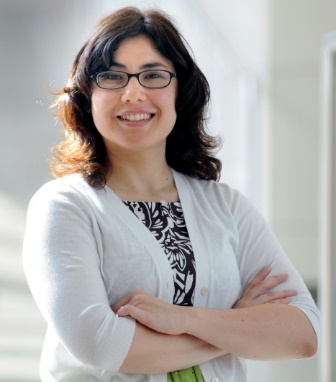
Dr. Treviño completed her PhD in 2010 from Cornell University and has a total of 12 peer reviewed publications with seven of them as first author. Currently she is a postdoctoral research associate in the Institute of Biosciences and Technology at Texas A&M Health Science Center. Dr. Treviño is committed to leadership and community service as evidenced by her numerous positions of leadership in American Association for the Advancement of Science, The Endocrine Society, Fellow/Student Associate member and the National Postdoctoral Association. The NIH has invested in her training with support by both F31 and F32 awards. She is currently supported by a Diversity Supplement Award for studies that are potentially paradigm shifting regarding our understanding of obesogens.

Ms. Watson is a Clinical Informatics Masters student at Oregon Health Sciences University. While completing her undergraduate studies at Washington State University, she was part of Stanford University’s Stanford’s Short-Term Trainee Program (STTP) and successfully completed Introduction to Biomedical Informatics. Ms. Watson worked as secondary coder for qualitative analysis of a set of semi-structured interviews with women who used a web-based decision aid (Mammopad). Since completing the STTP program, Ms. Watson enrolled in the Biomedical Informatics Master’s Program at Oregon Health and Science University and became a research assistant for Dr. Eden. Lindsey continued to work on manuscripts after her paid position ended, and this resulted in co-authorship on 3 publications (Eden KB, Scariati P, Klein K, Watson L, Remiker M, Hribar M, Forro V, Michaels L, Nelson HD. Mammography Decision Aid Reduces Decisional Conflict for Women in Their Forties Considering Screening. J Womens Health (Larchmt). 2015 Sep 11. [Epub ahead of print] PubMed PMID: 26360918; Scariati P, Nelson L. Watson L, Bedrick S, and Eden KB. Impact of a decision aid on reducing uncertainty: Pilot study women in their 40s and screening mammography. BMC Medical Informatics and Decision Making, 15:89, November 2015; Klein KA, Watson L, Ash J, Eden KB. Evaluation of Risk Communication in a Mammography Patient Decision Aid. Patient Education and Counseling, In Press, February 2016.)
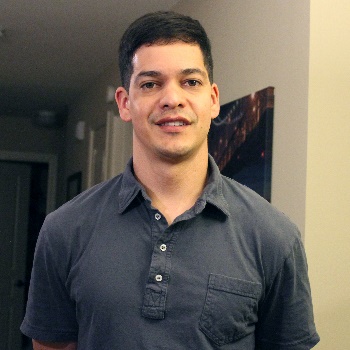
Dr. Whitson received his PhD from University of Colorado, Denver, in 2012. His current research as a postdoctoral research fellow at Stanford University focuses on describing molecular cues in resistant basal cell carcinoma (BCC). Working with the Oro laboratory at Stanford, he has utilized bioinformatics and functional cell biology approaches to uncover novel oncogenes and driver pathways required for resistant BCC growth. Dr. Whitson is currently involved in efforts to develop second-line therapies that target these critical resistance pathways.

Dr. Wilkins earned her MD from the Howard University School of Medicine and completed her residency training in internal medicine at Duke University Medical Center. Currently she is an associate professor of medicine in the Division of General Internal Medicine and Public Health at Vanderbilt University School of Medicine and has a joint appointment as associate professor of medicine at Meharry Medical College. Currently she serves as the executive director of the Meharry-Vanderbilt Alliance, a strategic partnership between Meharry Medical College and Vanderbilt University Medical Center. Her research experience comprises a spectrum of clinical and translational studies including clinical trials, secondary data analyses and community-engaged research. Dr. Wilkins has substantial experience in engaging non-research stakeholders, including groups often underrepresented, in research.
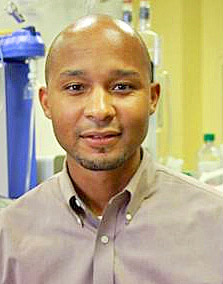
Dr. Yates is a professor in the Department of Biology and Center for Cancer Research at Tuskegee University (TU). Dr. Yates received the PhD from the University of Pittsburgh, School of Medicine, and the BS and MS degrees from TU. Throughout his career, he has served on multiple NIH/Department of Defense-funded grants, and is currently working within the TU cancer research community to build its capacity to conduct cancer research at a high level. His research is focused on identifying racially distinct signaling pathways that are responsible for tumor aggressiveness in African American prostate and breast cancer patients.





